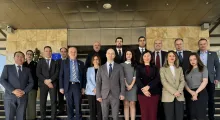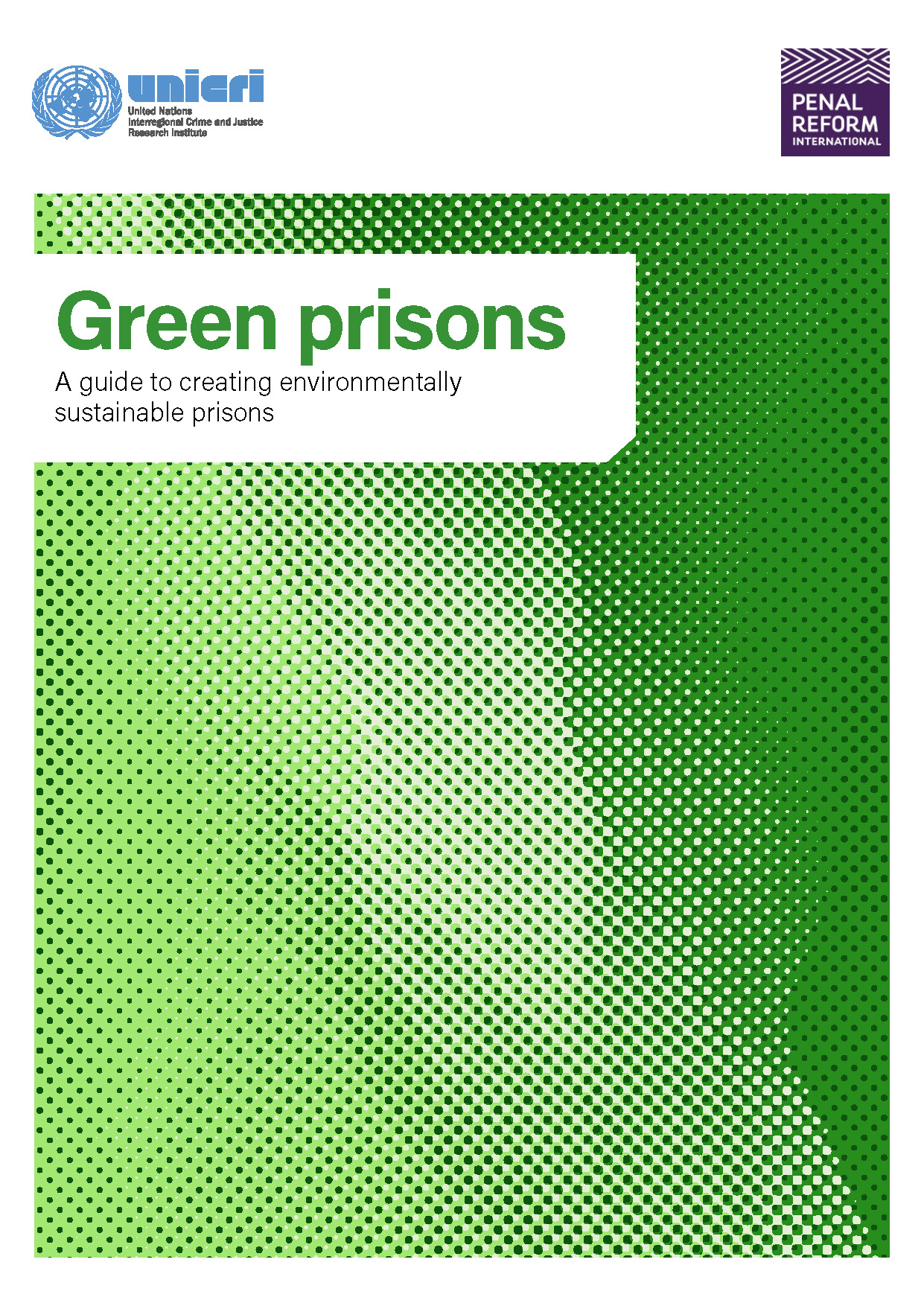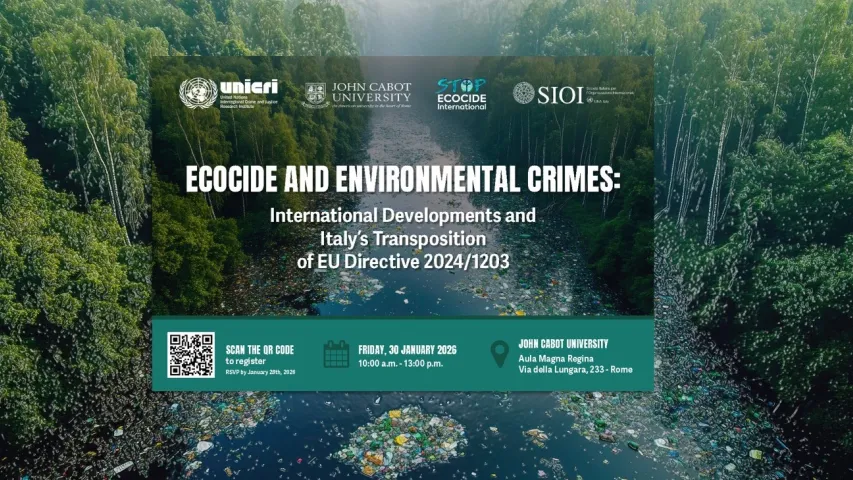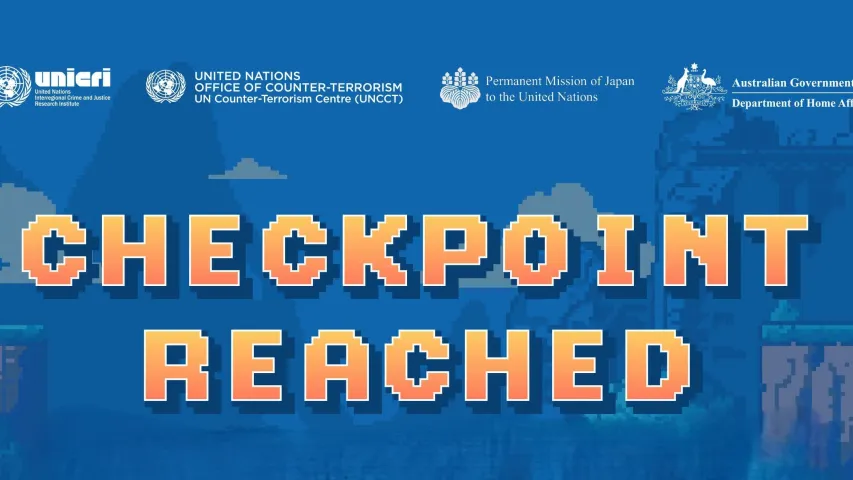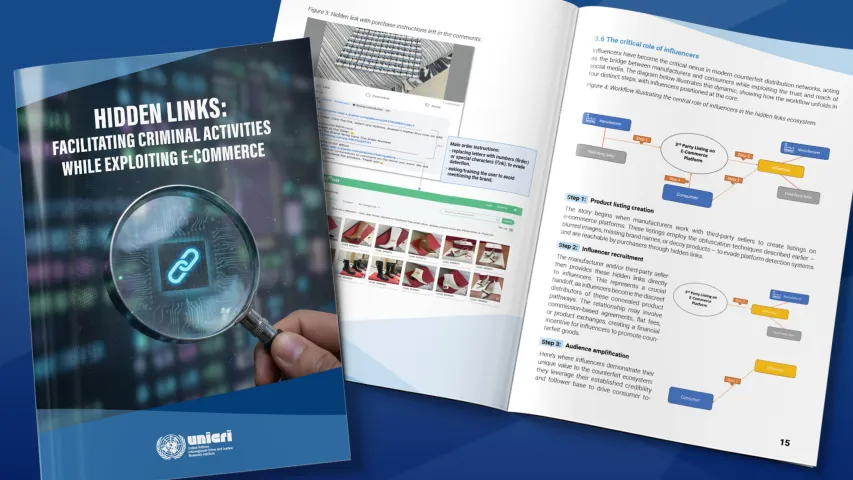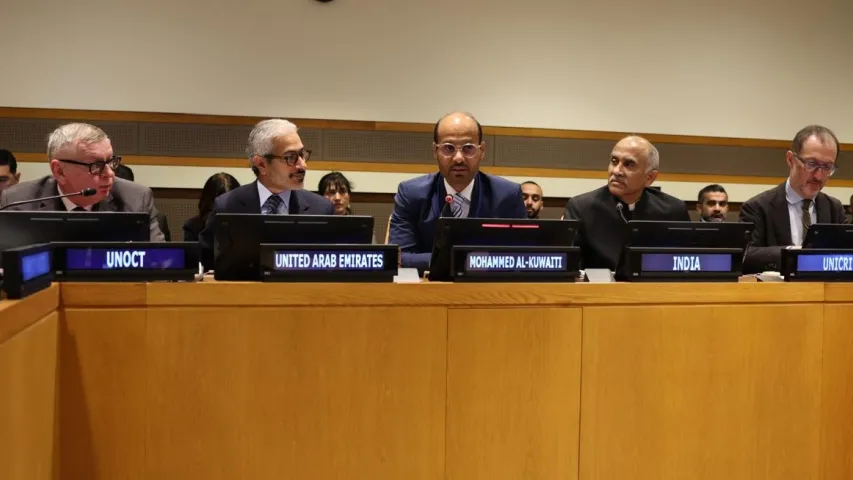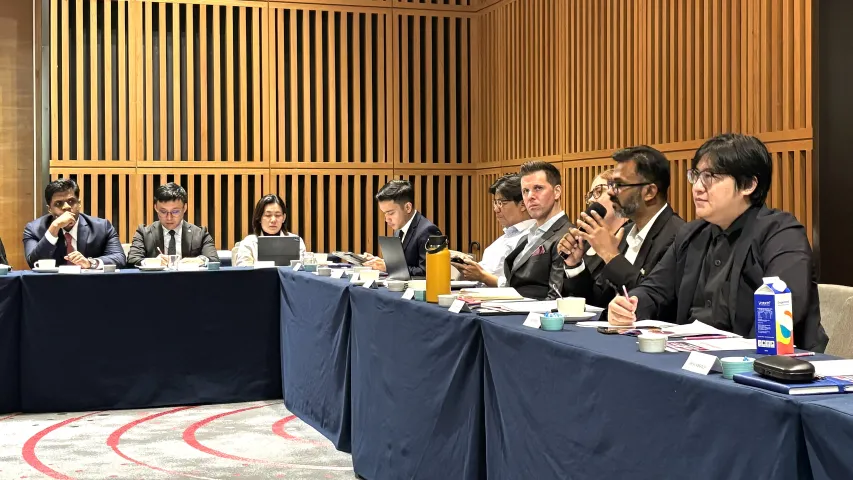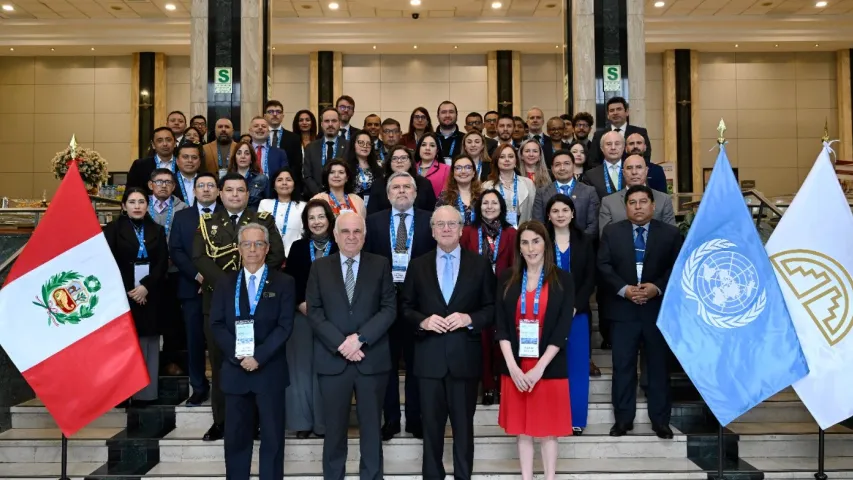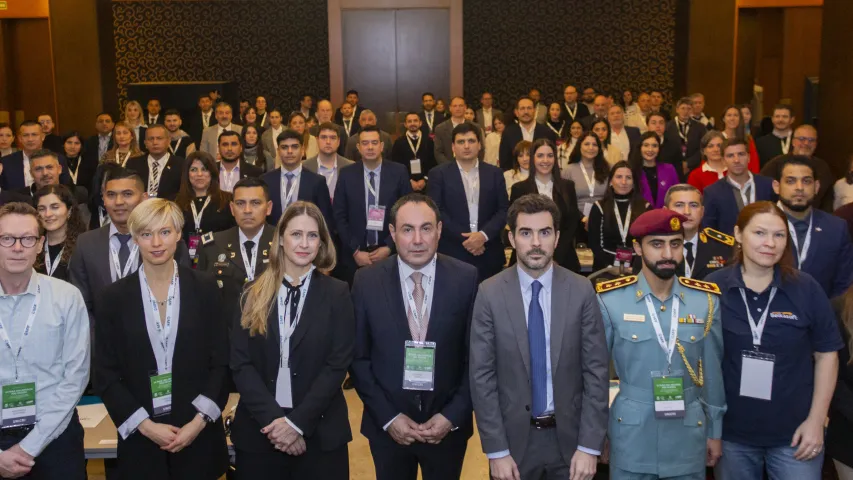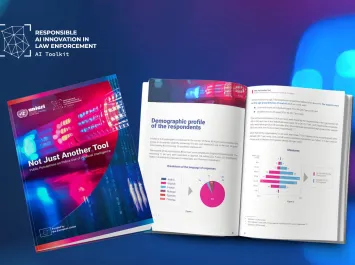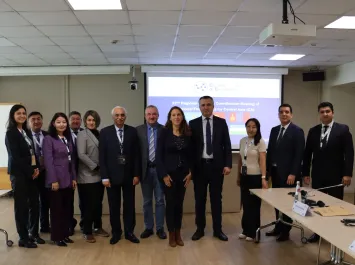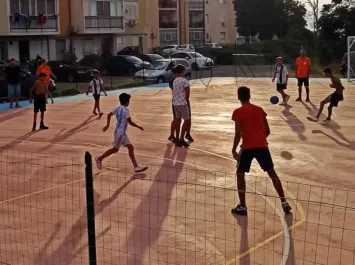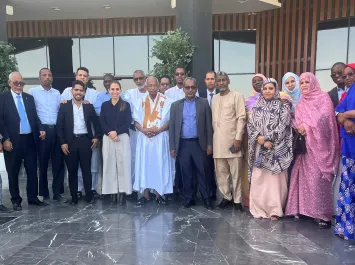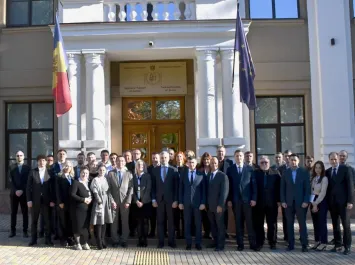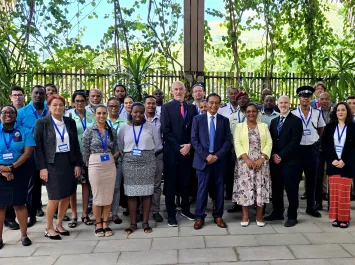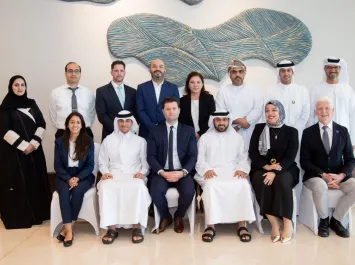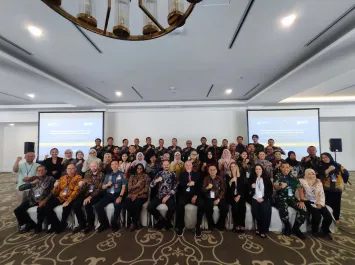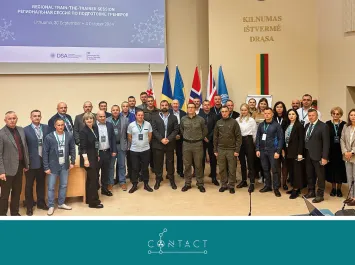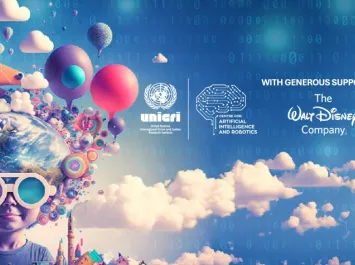New event! A Greener Path: Sustainable Practices in Correctional Facilities
NEW! Analysis of Interconnected Climate Security and Violent Extremism Risks: A Practical Guide for Mauritania
UNICRI’s latest methodology, "Analysis of Interconnected Climate Security and Violent Extremism Risks: A Practical Guide for Mauritania," was developed with the generous financial support of the German Federal Foreign Office. This practical and gender-responsive tool provides a structured framework for analysing the complex intersections of climate change and violent extremism risks in Mauritania, enabling more informed, inclusive, and resilient responses.
Tags
Un Analyse des risques interconnectés liés à la sécurité climatique et à l'extrémisme violent: Guide pratique pour la Mauritanie
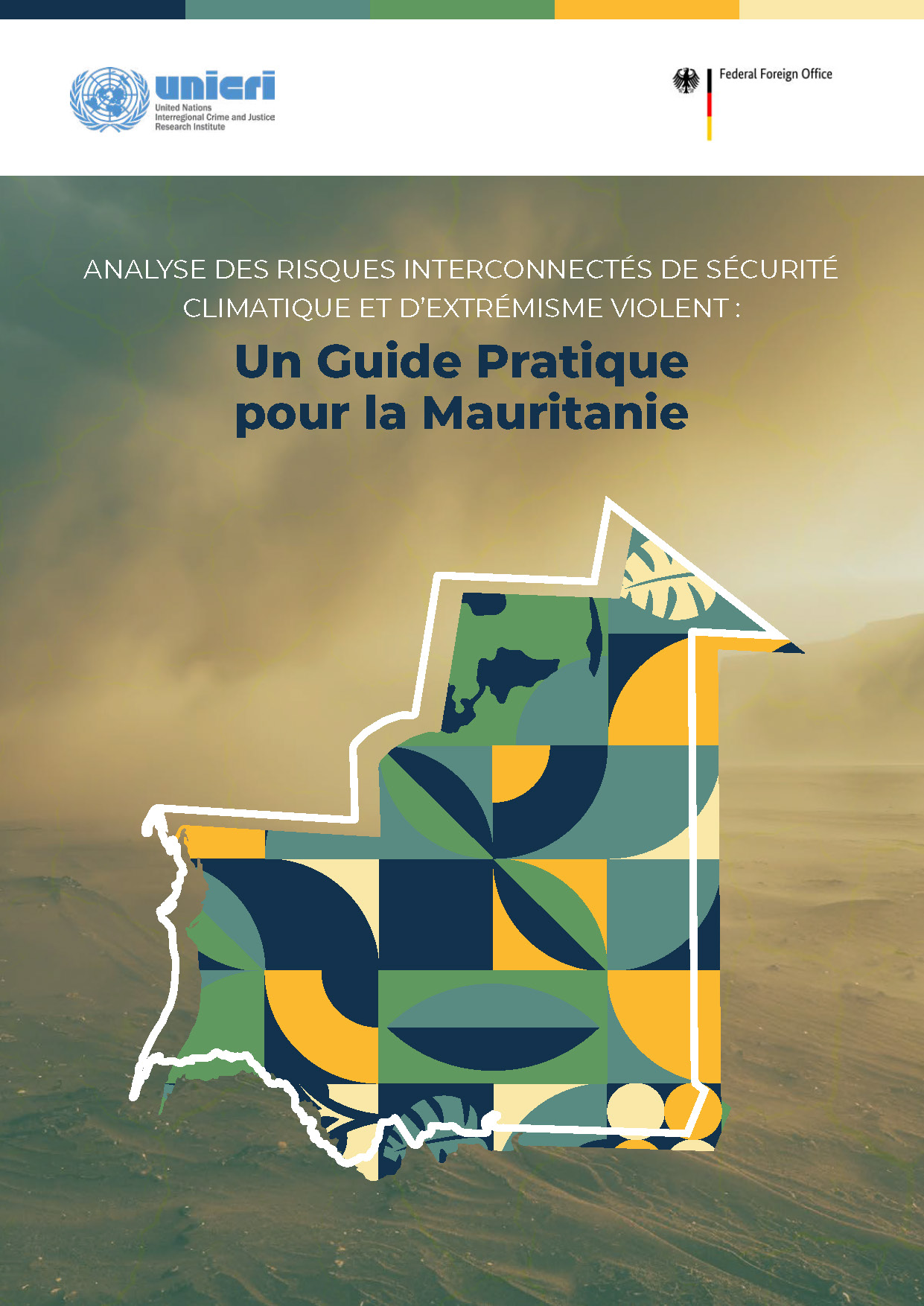
La toute dernière méthodologie de l'UNICRI, « Analyse des risques interconnectés liés à la sécurité climatique et à l'extrémisme violent : Guide pratique pour la Mauritanie », a été développée grâce au généreux soutien financier du ministère fédéral allemand des Affaires étrangères. Cet outil concret et sensible au genre offre un cadre pratique pour analyser les intersections complexes entre les risques liés au changement climatique et l'extrémisme violent en Mauritanie, permettant des réponses plus informées, inclusives et résilientes.
Analysis of Interconnected Climate Security and Violent Extremism Risks: A Practical Guide for Mauritania
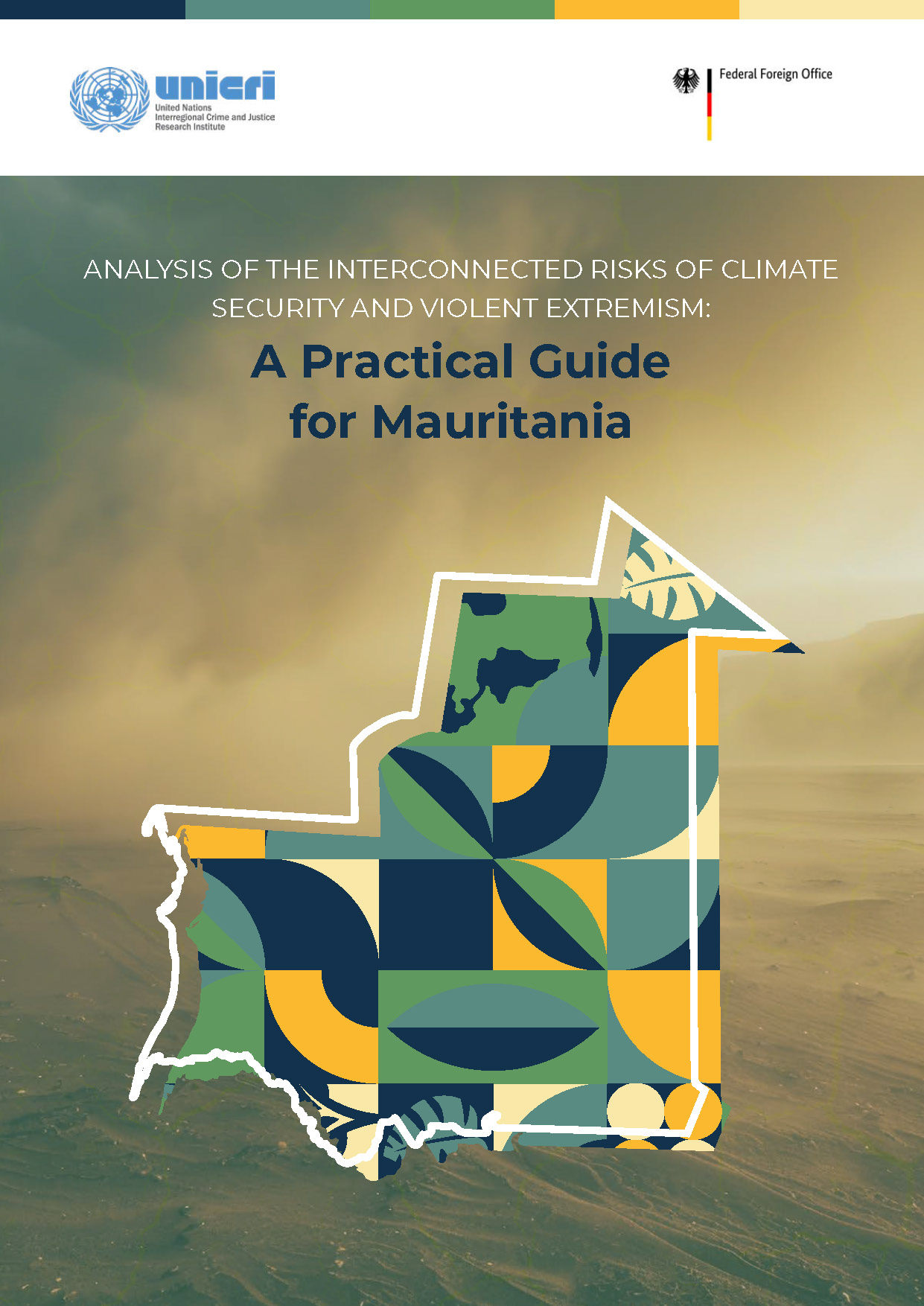
UNICRI’s latest methodology, "Analysis of Interconnected Climate Security and Violent Extremism Risks: A Practical Guide for Mauritania," was developed with the generous financial support of the German Federal Foreign Office. This practical and gender-responsive tool provides a structured framework for analysing the complex intersections of climate change and violent extremism risks in Mauritania, enabling more informed, inclusive, and resilient responses.


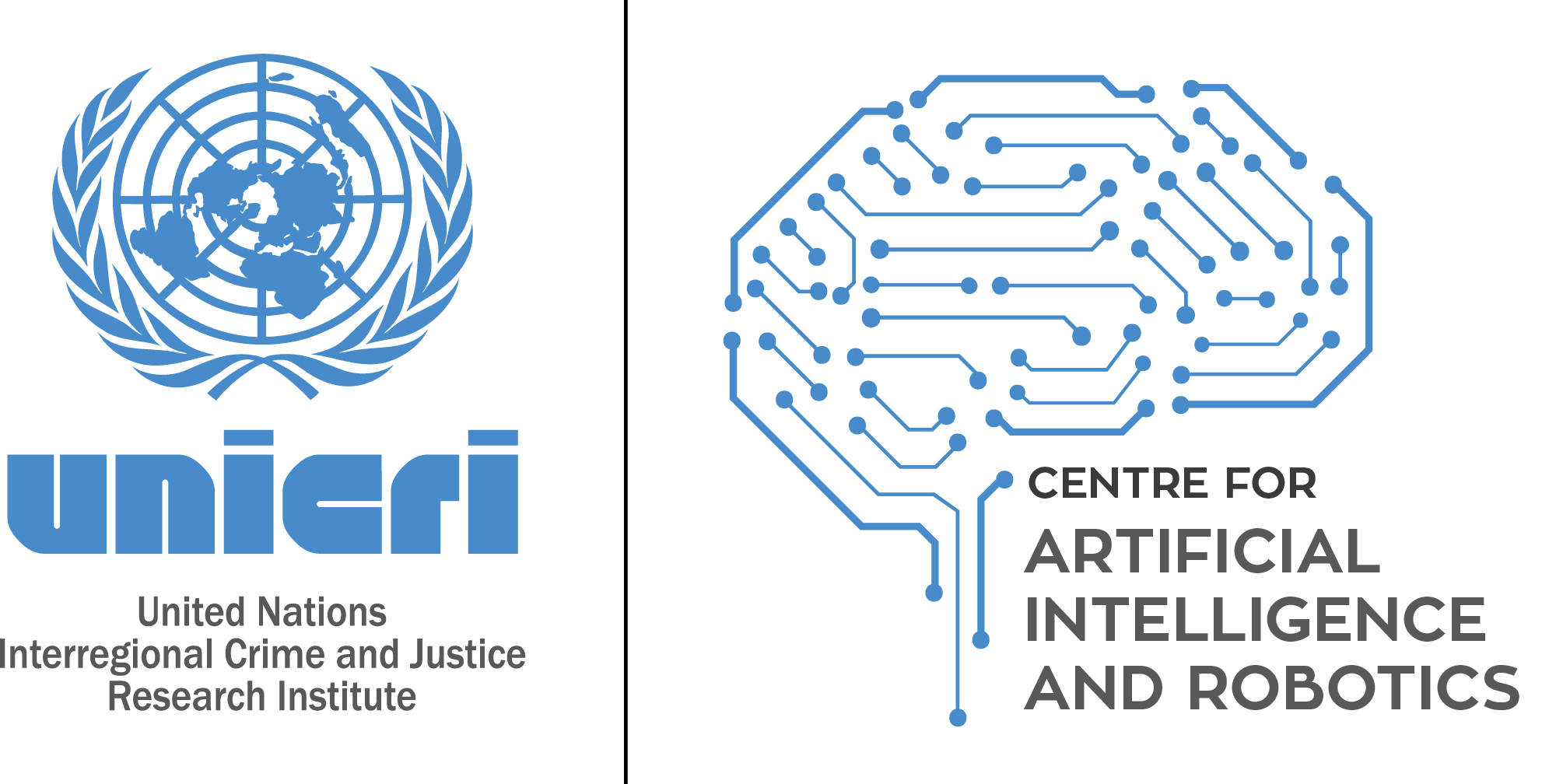

Deadline for application: 8 June 2026
The rapid advancement of artificial intelligence (AI) is reshaping societies and creating new opportunities for efficiency and innovation. However, these developments present significant ethical challenges, particularly in protecting fundamental human rights. Issues such as algorithmic bias, discrimination, and fairness highlight the disproportionate effects AI can have on marginalised communities. The tension between public safety and personal freedom becomes especially critical as AI technologies are increasingly integrated into vital sectors, including criminal justice, healthcare, and labour.
The international community continues to grapple with the challenges posed by AI advancements. In December 2024, UN Secretary-General António Guterres addressed the Security Council, stating, “Humanity’s fate can’t be left to algorithms.” He stressed the urgent need for global AI governance, warning that the rapid pace of AI development is outpacing regulatory efforts, increasing risks to global peace and security. The Secretary-General Guterres highlighted critical concerns, including safety, equality, accountability, and the need to maintain human oversight in AI-driven decision-making.
The need to advance knowledge on AI and challenges associated with the protection of human rights and ethical principles is becoming increasingly urgent. It is equally essential to foster the development of a new generation of experts equipped to tackle today’s challenges while anticipating those of the future. In response to this need, UNICRI and LUMSA Human Academy are hosting a unique and specialised training dedicated to these critical topics.
The Summer School offers a comprehensive knowledge of the main scientific features of AI, starting with its definition, exploring its key characteristics, and examining recent developments and innovations. It also addresses emerging ethical questions and their impact on human rights in today's landscape.
Participants will engage with key ethical principles and values surrounding AI, such as meaningful human control, trustworthiness, explainability, transparency, non-discrimination, privacy, surveillance, autonomy, accountability, and sustainability. They will also examine how these principles and values should guide our actions throughout the AI life-cycle, from design and development to deployment and real-world applications.
The objective is to illustrate how technologies may pose risks to or help safeguard human dignity from a human-centric perspective.
Over the week, participants will delve into the philosophical and legal frameworks governing AI and human rights in the international context, exploring recent regulations in Europe (AI Act, 2024) and outlining how international human rights law applies to AI technologies.
The course will then focus on critical issues such as algorithmic bias, discrimination, and inequalities in AI systems, emphasising their impact on marginalised communities and society. It will also highlight the tension between public safety and personal freedom in an increasingly data-driven world. Additionally, the course will also address the ethical responsibilities of tech companies, governments, societies, and individuals in mitigating the risks associated with AI and its impact on specific fields. Furthermore, it will explore neuro-AI (the convergence of neurotechnologies and AI) and examine specific cases in healthcare, criminal justice, and labour rights, focusing on vulnerabilities.
By the end of the course, participants will have developed a nuanced understanding of the complex relationship between AI, ethics, and human rights, equipping them with interdisciplinary knowledge and critical awareness to evaluate AI's role in society.
Through lectures, document analysis, case studies, interactive debates, and expert insights, participants will explore ways to ensure that AI is developed and deployed with a strong emphasis on ethical considerations and respect for human rights. This dynamic learning environment will engage and empower participants to contribute to the ongoing dialogue on balancing scientific and technological innovation with fairness and justice in a human-centric approach.
This course will take place within the AI Literacy Programme, conducted by UNICRI through its Centre for Artificial Intelligence and Robotics in The Hague, The Netherlands, since 2016. The programme promotes awareness of AI’s risks and benefits through a human rights-based approach, fostering practical coordination, knowledge-sharing, and public engagement. This Centre is dedicated to the responsible development and use of AI and robotics from the perspective of crime and security, focusing on awareness-raising, education, information exchange, and stakeholders' harmonisation.
In 2024, LUMSA University established the Centre for Bioethics and Digital Transition in Rome, which promotes an interdisciplinary dialogue encompassing informatics, human and social sciences, ethics, law, and politics. Its goal is to reflect on the theoretical foundations and practical application of a human-centric perspective to AI. The Centre coordinates European and international research projects on AI ethics in medicine and the workplace, with a specific focus on vulnerabilities.
The course is designed for university students, postgraduates, PhD candidates, professionals, UN personnel, and AI enthusiasts interested in exploring the intersection of AI, ethics, and human rights.
The Summer School offers professional, legal, social, scientific, and academic perspectives through lectures, interactive debates, case studies, and expert insights. The faculty of the Summer School comprises leading scholars and academics from LUMSA and other universities, along with representatives from the United Nations system, international human rights bodies, and civil society organisations.
Whether attending the course in person at the LUMSA Human Academy’s beautiful premises in the heart of Rome (Italy), or through a dedicated online platform, participants will have the opportunity to interact with internationally recognised experts and peers from all over the world, exchange views and opinions, and build lasting professional relationships. The Summer School experience aims to foster intercultural dialogue and promote a deeper understanding of some of the world’s most complex and debated issues.
Key Information
| Dates | 22-26 June 2026 |
| Venue | Rome (Italy) or online |
| Application deadline | 8 June 2026 |
| Confirmation of acceptance | Within 1 week following submission of the application |
| Payment deadline | Within 1 week following confirmation of acceptance |
| Contacts | UNICRI: unicri.courses@un.org | (+39) 06 6789.907 LUMSA Human Academy: info@lumsahumanacademy.it | +39 06 6842 2931: (please indicate “Artificial Intelligence" in the subject of the e-mail). |
1. Entry Requirements
The course is intended for university and post-graduate students, PhD candidates, including United Nations (UN) personnel, and AI enthusiasts interested in exploring the intersection of AI, ethics, and human rights.
Candidates must meet the following minimum requirements:
Be enrolled in, or have completed, a first university degree program (bachelor’s level or equivalent).
Possess a strong command of the English language.
2. Course Methodology
The Summer School adopts a hybrid model of learning, which allows participants to attend lectures either in person or virtually through their own devices to accommodate individual needs.
Classes will be delivered live at LUMSA Human Academy in Rome (Italy) for those attending on-site and will be streamed for those joining remotely. Special attention will be devoted to ensuring synchronous and seamless interaction between instructors and participants, both online and in class.
The class schedule may be subject to change to include additional activities, which will be communicated before the course begins. Absences resulting from inadequate planning will not be considered justified. Participants who do not complete the course will not be entitled to a certificate, refunds, or reductions in registration fees.
In-person modality
Classes will take place at LUMSA Human Academy in Rome (Italy) from Monday to Friday from 9:30 am to 4:30 pm CEST.
Online modality
Classes will be streamed via a dedicated online platform from 9:30 am to 4:30 pm CEST from Monday to Friday. Online participants are expected to adjust their schedules to fully participate in the classes, irrespective of the time zones they are in.
Participants need a computer (recommended) or a mobile device with audio and video capabilities, a headset with a microphone to connect to the audio through the computer or mobile device, as well as a reliable internet connection. It is recommended to access audio through the computer. No special software is required. Upon acceptance to the course, participants will be provided with information on how to access the platform.
3. Certificate of Participation
Upon successful completion of the entire Summer School programme, participants will be awarded a certificate of participation jointly issued by the United Nations and LUMSA Human Academy. The Organizers reserve the right to take into account duly justified and exceptional reasons for absences when determining eligibility for the certificate.
4. How to Apply
The selection is carried out on a rolling basis.
Please click on this link and follow the instructions to apply through the Lumsa Human Academy portal. If you need any assistance, you can contact us via email or phone.
Applicants requiring a VISA (IMPORTANT)
Applicants wishing to attend in person and requiring a visa are advised to submit an early application (preferably by 31 March 2026) and notify the Administrative Office of this circumstance. The visa will be issued by the competent Italian Diplomatic Authorities in the countries of nationality or residence of participants or the relevant Visa Application Centre.
Please note that booking an appointment with the competent Italian Diplomatic Authorities or the Visa Application Centre may take up to 3 months, and issuing a visa takes approximately 30 days. Neither UNICRI nor LUMSA Human Academy can be held accountable in the event of visa refusal.
5. Registration Fees
In-person modality: 1,000 Euro.
Online modality: 800 Euro.
Registration fee includes:
● Tuition
● Course material
● Lectures’ recordings (upon request)
6. Refund and Cancellation Policy
In the event of a participant’s cancellation for any reason, including visa denial, registration fees will not be refunded.
Strengthening the Women, Peace, and Security Agenda in Italy and Mauritania: Sharing Good Practices and Building Strategic Partnerships

At the end of 2024, with the support of the Italian Ministry of Foreign Affairs and International Cooperation (MAECI), the United Nations Interregional Crime and Justice Research Institute (UNICRI) launched a project to strengthen and enhance collaboration between Italy and Mauritania on the Women, Peace, and Security (WPS) agenda, with a particular focus on the Prevention of Violent Extremism (PVE).
